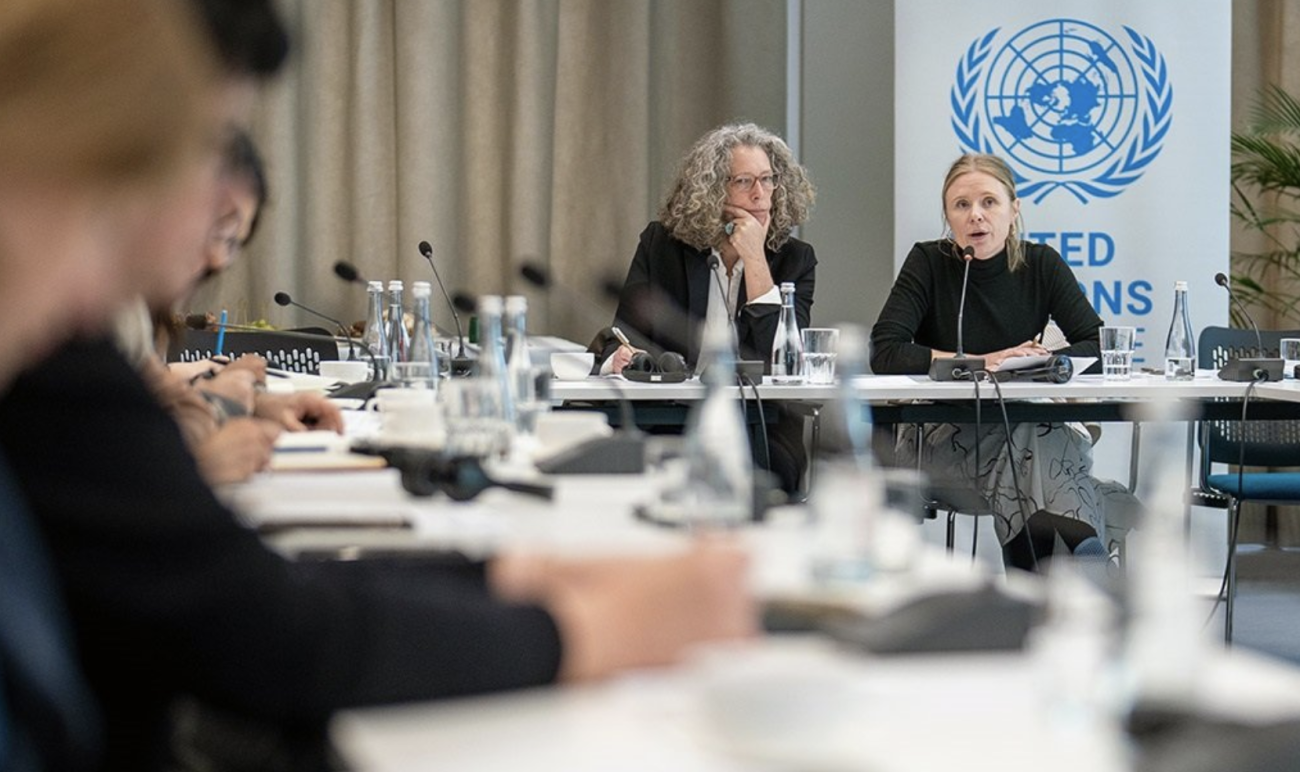Roundtable dialogue on humanitarian support for persons with disabilities in Ukraine

The war in Ukraine has posed new challenges for persons with disabilities living in Ukraine.
With the thousands of injuries sustained since the beginning of the war, the United Nations (UN) expects this population to have grown significantly. Major needs and solutions in providing humanitarian assistance amid the war and organizing a more effective local response were discussed during 2 roundtable sessions facilitated by WHO Ukraine, with the participation of Ukrainian organizations of persons with disabilities (OPDs) and UN agencies.
The first part of the OPD-led event featured an analysis of challenges and priorities for persons with disabilities to access dignified and inclusive humanitarian assistance. The recommendations provided by OPDs during this first session aimed to encourage a more contextually relevant response that addresses the needs of all people in need in Ukraine, including those who require reasonable accommodations and universally accessible environments.
“We need practical solutions for more inclusive service delivery in these unprecedented times. Therefore, it is important for WHO to facilitate this gathering between national organizations of persons with disabilities and international partners,” said Dr Jarno Habicht, WHO Representative in Ukraine.
The WHO European Framework for action to achieve the highest attainable standard of health for persons with disabilities 2022–2023 is a key priority for WHO Ukraine in the coming years.
During the second part of the event OPDs presented their recommendations to senior UN decision-makers. All participants discussed the need to encourage meaningful participation of OPDs in the international system, to harness local expertise to provide a more effective local response and to generate disability-disaggregated data to inform strategic decision-making. “Data about the needs of Ukrainians with disabilities are key for identifying priorities,” explained Denise Brown, UN Resident and Humanitarian Coordinator in Ukraine. Moreover, persons with disabilities should be engaged in humanitarian response not only as beneficiaries, but also as service providers who have the necessary knowledge and skills to be leaders in their communities.
Moving forward amid the war
There are 2.7 million persons with disabilities registered in Ukraine (including over 160 000 children). However, the actual number is likely much closer to the international disability prevalence rate of 16%. This would mean that there are over 6 million persons with disabilities in Ukraine, which includes 20% of the 11.3 million pensioners in the country. Before the escalation of the war, the Government of Ukraine passed a range of legal acts for basic social protection and rehabilitation of persons with disabilities, and adopted the Strategy for a Barrier-Free Society as a framework for the participation of persons with disabilities in leisure activities, employment, education, health, and social services, but progress has been limited due to the war.
The ongoing war in Ukraine has deepened pre-existing inequalities due to barriers to essential and other services. Disability inclusion is critical to providing principled humanitarian action, which addresses the needs of the entire affected population in a non-discriminatory manner. The roundtable dialogue organized by WHO Ukraine helped key UN agencies to better understand the gaps and served as a foundation for mapping the way forward in achieving disability-inclusive humanitarian action in Ukraine.


